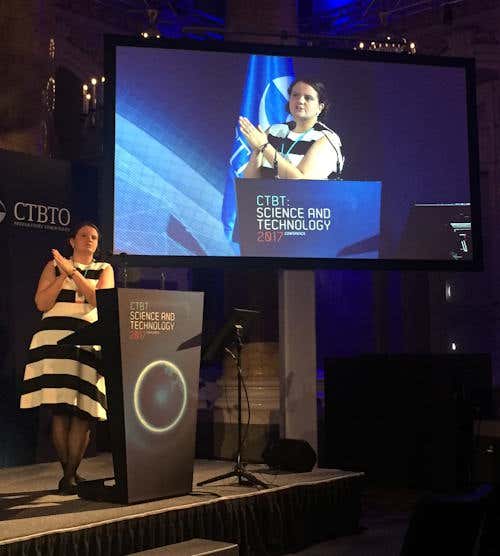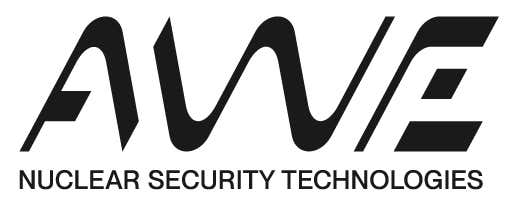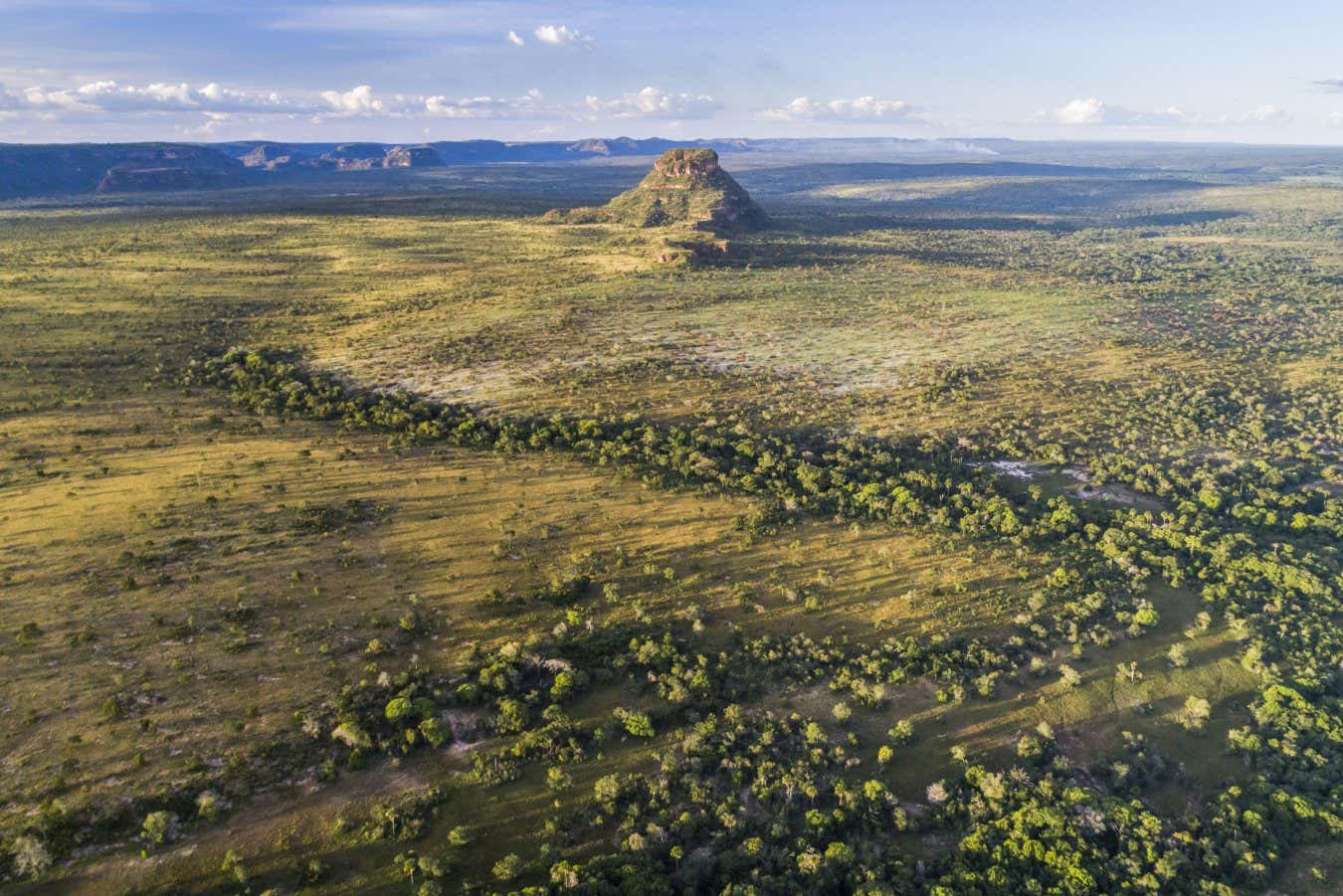DMP/ISTOCKPHOTO
“I will not forget that day.” Out on a nuclear test inspection exercise in rural Hungary, Jenny received news from her operations support centre in Vienna that an approaching thunderstorm was threatening the safety of her field team working in a dense forest. The terrain blocked all communications: mobile phone, satellite phone, radio—nothing worked. “We had a rescue team ready to get to that team and tell them to take shelter,” she recalls. When they finally got through and gathered the field team in their vehicles, the first lightning strikes hit just five minutes later. “It was really scary,” says Jenny. “As the lead, I see it as my responsibility, the safety of the team.”
Challenges like this are all in a day’s work for Jenny, who leads the Forensic Seismology Team at AWE, the technology and security organisation behind the UK’s nuclear deterrent. She is one of many women forging careers in nuclear security at the company, which was formerly known as the Atomic Weapons Research Establishment. She and her colleagues are leaders and role models for a new generation of employees. As her colleague and senior science manager, Lorna, puts it: “I think the idea that you can’t be a working mother in a senior management role has been pretty much debunked.” She believes that’s only become possible because of the equal opportunity policies AWE offers.
Jenny’s role includes speaking at conferences related to the Comprehensive Test Ban Treaty
Attracting women into engineering and nuclear security has long been a challenge for an industry with a stuffy, male-dominated image. AWE is tackling this with outreach programmes to schools, for example, that debunk stereotypes and show girls and young women the vast range of roles and careers on offer. Helen, now Group Leader, Engineering at AWE, recalls how similar schemes inspired her as an A-level student. “Like many young women, I knew I liked science and maths, but I didn’t know what I could do with it,” she says. “Without that outreach, I wouldn’t have understood the massive potential and scale of the industry.”
Retaining talent is another challenge AWE is tackling, and the company has several schemes to foster career development for women. One is a gender balance group supported by AWE’s human resources department. This focuses on three areas: attracting more women into AWE, changing the culture to improve the experience of woman at the company and working to maximise the potential of female employees. There are training courses in areas such as leadership and support for employees wanting to study for formal qualifications. For example, Lorna studied for a chartered management degree alongside her day job.
Employees are encouraged to go out and find the training that works for them, says Helen, who works on the Astraea programme to develop the UK’s replacement warhead. “We all have very good development plans and there’s a large swathe of coaches and mentors.” Both she and Jenny value the opportunities they have been given to learn on the job. “I’ve been on leadership courses,” says Jenny, “but I always find I get more out of being able to talk to somebody with more experience and just bounce ideas off them.”
The company is also removing barriers that prevent women advancing to senior roles. This has created an ethos of flexible working and an excellent work-life balance which benefits everyone. All employees are encouraged to take shared parental leave after the birth of a child, for example.
For women, the flexible working arrangements have been transformative. Lorna says that the balance this gives to her home and working life has huge implications for her family. “It means they get the best of me,” she says.
Meanwhile, Helen was supported in redesigning her job around school hours and Jenny receives time in lieu for the field exercises she leads, like the one in Hungary. And when the going gets tough, she can rely on being part of a supportive team. “I’ve been extremely lucky that every time I’ve been faced with a challenge, it’s been met with the support of those around me rather than a barrier.”
Learn more about AWE careers at: www.awe.co.uk/careers
Hear the stories from women in engineering at AWE on our podcast channel
A PATH FOR NON-SCIENTISTS
“It’s an environment where you have to be pretty tough,” says Lorna. “You’ve got to be thinking on your feet because things go wrong all the time.” She is not talking about her current job at AWE but her former career teaching modern languages at a UK secondary school. Lorna’s degree is in modern languages but the skills she acquired managing a room full of teenagers, such as time management and emotional intelligence, have allowed her to pursue a high-flying career as a leader and manager at AWE. “I think as teachers you’re not encouraged to reflect on the other skills that you deploy in the classroom that make you an incredibly attractive proposition for anybody who’s got any kind of people management and leadership requirements,” she says.
Much as she loved teaching, the Covid pandemic made Lorna question her career path. A civil service job advert for a team leader in policy and strategy caught her attention. It involved managing and leading a team that delivered operational and radiation protection training at Defence Science and Technology Laboratory, the science and technology research arm of the UK’s Ministry of Defence. The team was incorporated into AWE about a year ago. “The science bit terrified me,” says Lorna. “I thought I’d be getting a rejection email quite swiftly.”
But Lorna realised her people skills made her highly qualified for the role. These skills are often wrongly described as “soft” skills, she says. “I think they’re actually hard skills because, I don’t know that they can be easily taught.” She now manages a team of 70 in Defence Radiation Protection Services at AWE, helping the Ministry of Defence and a small number of commercial customers work with radiation safely. Despite not having a STEM background, Lorna says her expertise is valued and her efforts to understand her colleagues’ work recognised. “People value that and they value the time you invest in them as individuals,” she says.





